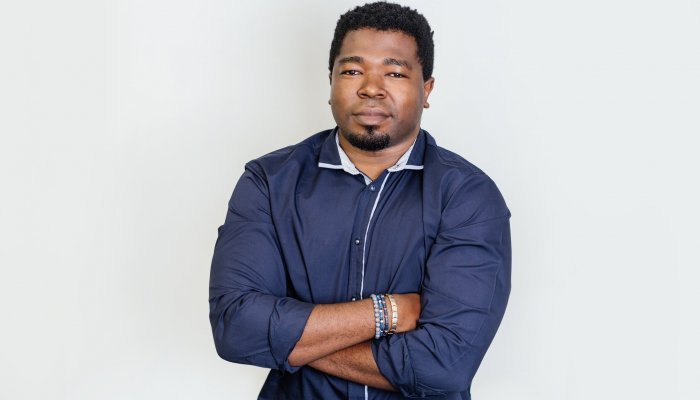Bitcoin – and by extension a cryptocurrency universe of about 1 300 that includes Ethereum, Ripple and Tether – is the Rocky Balboa of digital currencies. It’s been knocked down but has got up fighting time and time again. It was “the end” in 2011, according to Forbes magazine; “game over” for the world’s largest cryptocurrency in 2013, according to Business Insider, and “crypto fever has truly broken” in February 2019, according to Bloomberg.
This means when your track is downloaded, that you as an artist are automatically paid....
The Paris Fintech Forum, a major European gathering of bankers, investors and regulators, turned away from obsessing about the potential for cryptocurrency disruption in 2019 to focus instead on back-to-basics banking. In other words a greater focus on products and services, ably assisted by the new favourite kid on the block: artificial intelligence.
Even Bitcoin’s unintended technology disruptor, blockchain, was given short shrift. “It’s not clear to us that blockchain is better than what we have today,” Bloomberg quoted Gottfried Leibbrandt, CEO of cross-border payment system SWIFT, as saying. San Francisco-based start-up Ripple was quick to jump into the debate, coming out batting for blockchain. Ripple’s CEO Brad Garlinghouse said during a panel discussion with Leibbrandt: “Decentralised systems I think, over time, are likely to win.”
This exchange highlights both the uncertainty around the future of cross-border banking, as well as the potential many see in blockchain. Certainly, the underlying technology behind Bitcoin might not be as sexy as self-driving cars and virtual reality, but if the likes of Garlinghouse are proved correct then the ‘back-end’ blockchain system is likely to be a more profound impact on our lives than most of us realise.
In much the same way that mobile has enabled Africa to leapfrog traditional infrastructure deficits, so too is blockchain being touted as a game changer for the continent, particularly when it comes to ensuring transparency, safety and trust.
Already Bitcoin is gaining traction in Africa because it offers that same sense of security. In countries with a shortage of hard currency, Bitcoin has gained in popularity – surging to a record high in Zimbabwe in late-2017. While in Kenya, the Blockchain Association of Kenya estimates Bitcoin transactions are worth more than US$1.5 million, reports BBC News. Despite the volatility of cryptocurrencies, many are attracted by the safety and security associated with the digital currency as well as the ability to undercut the high cost of international money transfers.
But blockchain’s reach is even more impressive.
Blockchain in Africa
Bronwyn Williams, a trend translator and future finance specialist at Flux Trends, says blockchain could prove to be the infrastructure Africa needs to boost its digital credentials and seize new opportunities. This is something, she explains, which the Ghanaian government is already exploring in the land registration space. Working with IBM, Ghana is looking to modernise and computerise its paper-based land record system to create a verifiable land registry. This move is “going to cut down the middlemen of lawyers”, says Williams. Rwanda is also deploying blockchain to digitise its land registry, in partnership with Microsoft and cybersecurity firm WISeKey.
Kenya, meanwhile, intends rolling out blockchain-enabled technology to make real-time election results available in an effort to improve trust in the election process.
A boon for creativity
Another less-heralded advantage of blockchain is the protection it will afford creative industries, from musicians to artists who have been plagued by pirating and the easy spread of content via the Internet. In the future, blockchain-enabled technology could simply kick in when you view content and automatically debit your cryptocurrency account courtesy of something known as a ‘smart contract’ (an agreement that executes itself, without the need for a lawyer or money transfers or EFT payments), says Williams. “This means when your track is downloaded, that you as an artist are automatically paid. There is no escape in the system because it’s robust with so many people validating every single transfer of data. It would be really hard to pirate things.”
Similarly, consider the multimillion-dollar world of art and the curse of art fraud. With blockchain, explains Williams, you could create a chain of providence. “Everyone would have the same records, so it would be much harder to put a fraudulent picture into the system, because there would a chain through all those networks which anyone could look at, at any time.”
...Singapore Airlines has introduced blockchain technology to its frequent flyers programme, KrisFlyer...
Cosying up to consumers
Pilira Mwambala, ad operations director at digital strategy firm Mark1, is equally bullish about blockchain because of its potential to personalise communications and engagements with customers. He says: “In the world of online everything, a direct communication between a brand and consumer will be priced, monitored, measured and trusted accurately via blockchain technology.” This will be our reality in around 10 to 15 years, he projects.
Already, Mwambala explains that the likes of Singapore Airlines has introduced blockchain technology to its frequent flyers programme, KrisFlyer, as a digital ledger behind the initiative’s new digital wallet app. The wallet will allow members to use KrisFlyer miles to buy non-travel related goods from partner merchants, either in part or in full. “This would be a massive trajectory for loyalty rewards initiatives,” he says, noting that the Asian continent is extremely receptive to blockchain.
Another angle concerns direct marketing and the ability to personalise and target consumers more directly. Take, for example, pay-per-click (or PPC) and ad forwarding, which account for around 25% of advertising budgets, says Williams. “It’s hard to get data on this because there are so many kinds of click forwards and it’s easy to inflate those stats to get companies to pay more. For example, your competitors can click on your ads to rack up your ad bill without it even being a viable consumer. Facebook advertising is particularly plagued by this problem. Blockchain technology will reduce that because you will see where every click comes from, and not just the number of clicks. You’ll see so much more detail, so this would be a powerful tool to cut back on ad fraud sites.”
Fighting fraud
Initiatives like MetaX’s adChain Registry are already using blockchain in an effort to authenticate transactions and battle fraud in digital advertising, says Mwambala. “These initiatives will establish trusted advertising environments where our industry will benefit. Online campaign audits and payments will be very secure. Impression tracking will be correctly verified.”
These are increasingly essential services in an online world in which up to US$7.4 billion is lost due to hired clickers, bots and fraudulent traffic, says Mwambala, quoting figures from Forrester. The research firm estimates that this number will grow to US$10.9 billion by 2021 if no steps are taken to address the issue.
Tackling fraud is just one advantage of deploying blockchain, the next step will be creating algorithms to help advertisers control where their money is being spent. So, instead of paying YouTube to show a customer an advert you’d pay the customer to watch your ad, explains Williams. And you’d only pay the customer – using a smart contract, of course – once they’d watched the ad.
Imagine
Imagine watching an ad on Netflix and getting paid for viewing it? “With blockchain you could do that,” Williams says.
Imagine a world where the origin of Ethiopian coffee can be traced through blockchain. Actually, coffee label Moyee is already doing this to give consumers better information about their coffee’s origin as well as to identify inefficiencies in the supply chain.
Imagine a world where diamonds are authenticated as conflict-free and natural. South African diamond company De Beers rolled this out in 2018 under its Tracr platform.
Imagine a world where you can be sure that mining operations are not using child labour. This is already a reality in the Democratic Republic of Congo where a pilot project by car maker Ford, IBM, South Korean battery maker LG Chem and China’s Huayou Cobalt is using blockchain to monitor cobalt mining.
You don’t have to imagine a blockchain world. It’s here and its tendrils are everywhere.
What is blockchain?
Blockchain is, in simple terms, a large shared public ledger of information that is duplicated thousands of times over via a network of computers. This means that data isn’t stored in a single place, but is hosted on thousands of computers simultaneously. Those in the know note that because blockchain data is not centralised it cannot be hacked or disrupted at a single point. So it is secure, transparent and democratic.
Flux Trend’s Bronwyn Williams explains that the Internet stores information across billions of computers all over the world, but mostly on big servers. This is vastly different to blockchain. “With the Internet, if you want to read an article you’ll go onto the Internet and access it from whichever computer that data is stored on. With blockchain, all data is stored on all the nodes in the network,” she explains.
“So with blockchain you have an exact copy of the data chain on your computer that the other computer has in the network, and that is why these blockchain networks are quite secure – it’s why they were specifically developed for the Bitcoin technology. Every single computer on the network has a mirror image of that ledger, which is verified and validated across the network.”
WHAT DO YOU NEED TO KNOW?
· Blockchain is the technology created to run Bitcoin, the world’s largest cryptocurrency.
· Bitcoin is seen as a potential game changer for Africa, particularly when it comes to ensuring transparency, trust and security.
· But blockchain is more than just Bitcoin, it has applications beyond digital currencies.
· The technology is regarded as safe and secure since information does not live in one place, but is hosted on countless computers.
· Blockchain is like a centralised ledger, meaning that information can be shared quickly, safely and through an automated process.
· There are uses for the technology beyond current transactions, from property purchases to marketing, agriculture to mining.
· The technology holds great potential for Africa, where it offers transparency and security and can provide the infrastructure Africa needs to boost its digital credentials.






